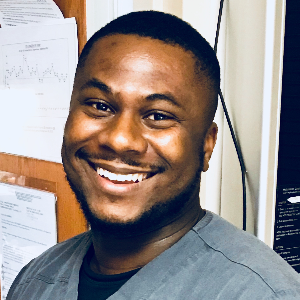Title: Implementing positive support behavior plans on an adult inpatient psychiatric unit
Abstract:
Problem: In September 2023, the Department of Psychiatry had to cover 4,200 hours for constant observation in an urban northeastern hospital. One-to-one constant observation is a safety intervention for managing patients who exhibit self-harm or express suicidal or homicidal ideations. Staffing for constant observation can be costly for multiple patients who may require intervention for extended periods and has not demonstrated effectiveness in curbing disruptive behaviors.Disruptive behaviors in an adult psychiatric inpatient setting can pose significant challenges, leading to emotional and physical harm to both patients and staff.
Purpose: The purpose of this quality improvement project is to implement the use of Positive Support Behavioral Plans, an evidence-based practice change, for patients in need of one-to-one constant observation. Positive Support Behavioral Plans identify appropriate behavioral interventions and goals to guide patient care. The behavioral plan focuses on identifying the function of disruptive behaviors and finding alternative methods to meet the individual’s needs. The goal is for an interdisciplinary team including physicians, nurses, and occupational therapists to collaboratively create a person-centered behavioral plan with the patient, which is intended to reduce disruptive behaviors in an urban adult inpatient psychiatric unit.
Method: The project is being implemented over 15 weeks in the fall of 2024, beginning with an interdisciplinary training session to educate physicians, nursing staff, and occupational therapists on project implementation. Behavioral Chain Analysis will be performed by physicians with patients and used to identify triggers for disruptive behaviors and alternative methods to meet patient needs. Once the Behavioral Chain Analysis is completed, the nursing staff will create and document a Positive Support Behavioral Plan. in the patient's electronic health record. Positive Support Behavioral Plans will be incorporated into the workflow for patients on constant observation or displaying life-threatening disruptive behaviors. Data is collected weekly detailing the frequency of electronically documented behavioral plans. Occupational therapists will be available to reinforce the plan with identified coping skills focused on distress tolerances and printed worksheets for patient education.
Preliminary Results: Data is being collected surrounding documented positive support behavioral plans, the number of potential behavioral plans that could have been created, and those behavioral plans that were initiated with Behavioral Chain Analysis. Collecting weekly frequency data of PSBPs will help assess the consistency of PSBP use among patients with disruptive behaviors. Currently, only one patient has been eligible for the project but refused the Behavioral Chain Analysis. Nursing staff have been able to use PSBP templates to identify behavioral interventions to address disruptive behaviors.
Preliminary Conclusion: The introduction of PSBPs aims to provide a structured, person-centered approach to managing disruptive behaviors in psychiatric patients requiring intensive supervision. If successful, this intervention may enhance patient outcomes by reducing reliance on constant observation, mitigating disruptive incidents, and improving patient and staff safety. Currently, the project has not produced many behavioral plans due to the difficulty of staff integrating into the process, staff turnover, and staff buy-in. Methods to improve buy-in included incentives, periodic reminders in team meetings, and identifying project champions to reinforce intervention.



